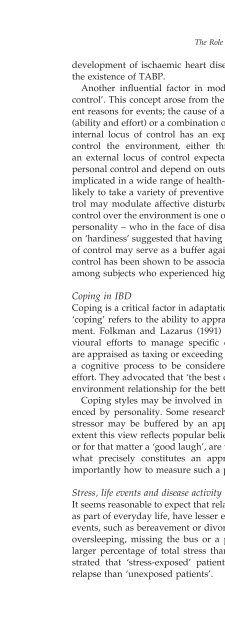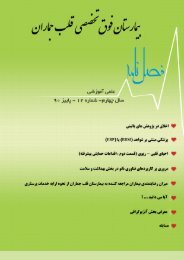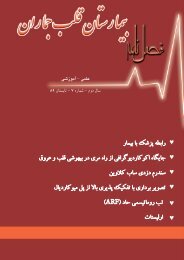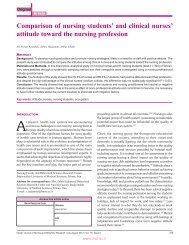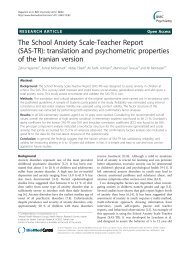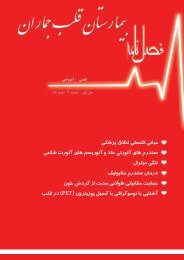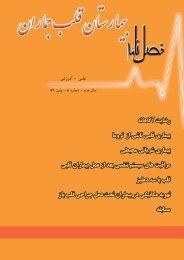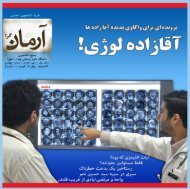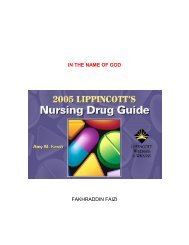Gastrointestinal Nursing.pdf
Gastrointestinal Nursing.pdf
Gastrointestinal Nursing.pdf
Create successful ePaper yourself
Turn your PDF publications into a flip-book with our unique Google optimized e-Paper software.
The Role of Psychosocial Factors in Gastroenterology 173development of ischaemic heart disease. However, there is uncertainty overthe existence of TABP.Another influential factor in modulating the stress response is ‘locus ofcontrol’. This concept arose from the observation that individuals give differentreasons for events; the cause of an event could be external (luck), internal(ability and effort) or a combination of the two (Rotter 1966). A person with aninternal locus of control has an expectation that he or she will be able tocontrol the environment, either through ability or effort. Someone withan external locus of control expectation believes that outcomes are outsidepersonal control and depend on outside influences. Locus of control has beenimplicated in a wide range of health-related behaviours, with ‘internals’ morelikely to take a variety of preventive measures than ‘externals’. Personal controlmay modulate affective disturbance and job-strain. A sense of personalcontrol over the environment is one of the principal components of the ‘hardy’personality – who in the face of disaster appears immune to stress. Researchon ‘hardiness’ suggested that having more internal control or an internal locusof control may serve as a buffer against stress. However, an internal locus ofcontrol has been shown to be associated with a greater susceptibility to stressamong subjects who experienced high levels of life events.Coping in IBDCoping is a critical factor in adaptation to stressful life events. In this instance‘coping’ refers to the ability to appraise and respond to IBD and its management.Folkman and Lazarus (1991) defined coping as ‘cognitive and behaviouralefforts to manage specific external and/or internal demands thatare appraised as taxing or exceeding the resources of the person’. In order fora cognitive process to be considered coping it must involve a purposefuleffort. They advocated that ‘the best coping is that which changes the person–environment relationship for the better’.Coping styles may be involved in the response to stress and may be influencedby personality. Some researchers have speculated that the effect of astressor may be buffered by an appropriate coping mechanism, and to anextent this view reflects popular belief. The supposed benefits of a ‘good cry’,or for that matter a ‘good laugh’, are well known but it is less well understoodwhat precisely constitutes an appropriate coping mechanism, and moreimportantly how to measure such a phenomenon.Stress, life events and disease activity in IBDIt seems reasonable to expect that relatively trivial daily stressors, which occuras part of everyday life, have lesser effects upon symptoms than do major lifeevents, such as bereavement or divorce. Nevertheless, daily stressors, such asoversleeping, missing the bus or a phone incessantly ringing account for alarger percentage of total stress than major life events. It has been demonstratedthat ‘stress-exposed’ patients demonstrated greater risk of diseaserelapse than ‘unexposed patients’.


